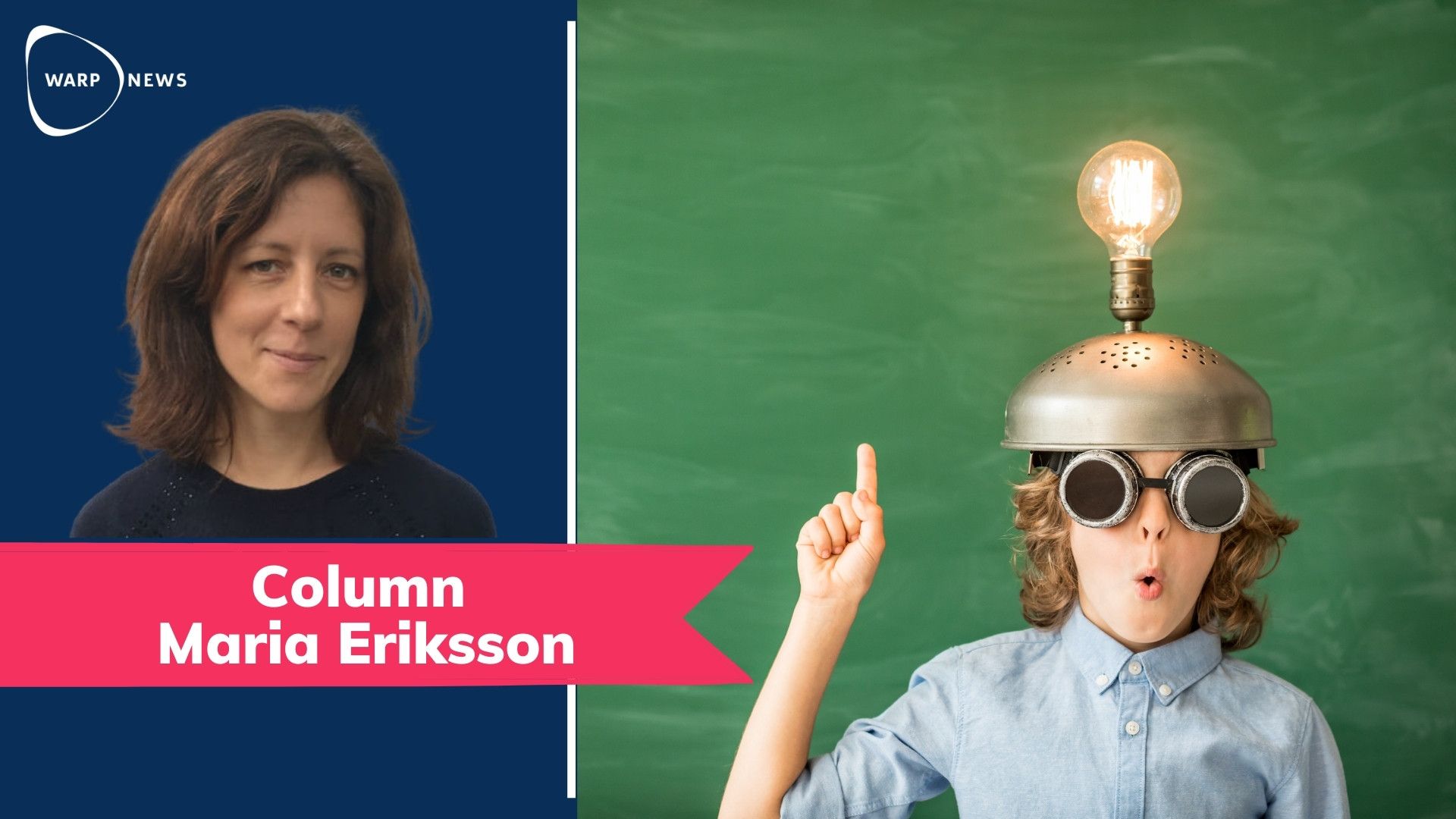
🏫 What is the school good for - and how can it be improved?
How do you prepare for a future that is largely unknown? How do you contribute to changing the world for the better? How do you create tools for a good life? The school could play an important role in all this, if we dare to think anew.
Share this story!
What will tomorrow's school look like? Despite the fact that schools are ranked as one of the most important political issues by the voters, there is a lack of ideas if you listen to the school policy debate. How knowledge is to be measured and graded seems more interesting than what is actually to be taught. The discussions are long about who should have the right to run a school and how it should be financed. But why does the school exist? What purpose does it serve? How can it best prepare students for the future? Those questions are almost completely missing.
While waiting for a French train, I step into a kiosk and immediately find More food for thought. The magazine Kaizen borrowed its name from the process that is primarily associated with Toyota's manufacturing, which in Japanese roughly means striving for continuous improvement. In this particular issue, school is tackled, or rather the question of "education or learning"? It's already an interesting question, what exactly do we want to achieve?
Today's school is a relatively new phenomenon
The school as it looks today – classrooms, teachers, textbooks – is a relatively new phenomenon. However, children have, of course, always learned things. Mainly by participating in the life that was going on around them. To be able to accompany mother, father, and siblings in their daily chores at an early age and learn to take care of children, cook, grow, hunt, build, and so on. Today, that way of life is associated with poor societies where parents cannot afford to send their children to school and where children are forced to work hard from an early age. It is, of course, nothing to strive for. But the school as an institution also bears scrutiny. Basically, it is about an environment where children during their ten perhaps most formative years are to be placed in a group together with twenty or thirty other people of exactly the same age and then learn mainly by reading books and listening to a teacher. Education takes place in relative isolation from society in general and from other age groups. It is a rather strange way of acquiring knowledge from a historical, human perspective. Perhaps it is also the best way to prepare for adult life in today's high-tech society. But the question must be asked whether there is room for continuous improvement.
YouTube teacher
Which ideas are raised in Kaizen? An article is about teachers using Youtube and TikTok to reach more people; they become a kind of educational influencers. Today we have fantastic opportunities to let the most skilled educators reach many thousands of students, instead of the 25 that would be the usual case.
One of the theme blocks is about creating better contact with nature, something that is hardly promoted by the traditional classroom. For example, it can be about teaching outdoors to promote observation skills, creativity, movement, and well-being. The children's need for "activity, movement or contemplation can be more easily respected" when the space is not limited by the school's walls, says an educator. Learning mathematics or history by feeling, looking, trying, and moving can provide a multidimensional complement to textbooks. But of course, it requires more commitment on the part of the teacher than just placing the usual classroom teaching outside.
Meditation at school?
Self-awareness and well-being are other themes covered in articles on yoga, meditation, and art as part of the teaching. The traditional school's focus is on acquiring knowledge and preparing for a future working life. But if we spend most of our waking hours from childhood to adulthood in school, perhaps questions about how to develop as a person should also be given more space? Competence, employability, and so on are probably so important. But how do you prepare for a good life?
How the school can promote collaboration is another issue raised. Here the focus is on how students can develop fellowship with others. But as I indicated above, I also think that we need to think about how the school - or the whole society - can promote more contact across generational boundaries. Because of course, it's a bit strange with all these age sections that we create where preschool children are placed separately, primary school children separately and at the other end the elderly separately? Could there be models to bridge those gaps?
Homeschooling?
Various alternative forms of teaching, including homeschooling - or perhaps rather non-school-based teaching - is another theme block. At best, it can be an example of how children can be integrated into the society around them and learn by actually participating in "real life", rather than in a constructed teaching situation.
That said, perhaps these should be seen more as questions to start a conversation, rather than ready-made answers. But I believe that there is an incredible amount to gain from us having an open and bold conversation about school and learning. There are obvious problems today: students who leave school with a lack of skills, who are mentally ill, and who do not fit into the school offered.
Preparing for an unknown future
And there are exciting opportunities to try: Digital technology's potential could be utilized much better. Dare to test different teaching models and experiment more could unleash our creative resources. I think it is needed. How do you prepare for a future that is largely unknown? How do you contribute to changing the world for the better? How do you create tools for a good life? The school could play an important role in all this if we dare to think anew.
Maria Eriksson
By becoming a premium supporter, you help in the creation and sharing of fact-based optimistic news all over the world.


